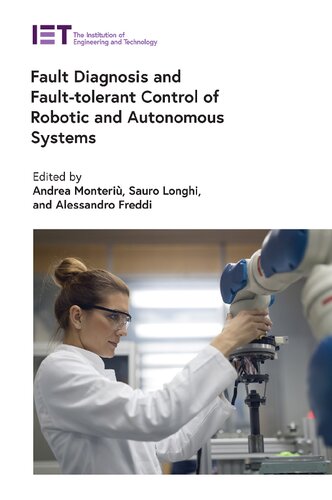

Most ebook files are in PDF format, so you can easily read them using various software such as Foxit Reader or directly on the Google Chrome browser.
Some ebook files are released by publishers in other formats such as .awz, .mobi, .epub, .fb2, etc. You may need to install specific software to read these formats on mobile/PC, such as Calibre.
Please read the tutorial at this link: https://ebookbell.com/faq
We offer FREE conversion to the popular formats you request; however, this may take some time. Therefore, right after payment, please email us, and we will try to provide the service as quickly as possible.
For some exceptional file formats or broken links (if any), please refrain from opening any disputes. Instead, email us first, and we will try to assist within a maximum of 6 hours.
EbookBell Team

4.8
14 reviewsRobotic systems have experienced exponential growth thanks to their incredible adaptability. Modern robots require an increasing level of autonomy and the capability to interact with humans. This book addresses the challenges of increasing and ensuring reliability and safety of modern robotic and autonomous systems. The book provides an overview of research in this field to-date, and addresses advanced topics including fault diagnosis and fault-tolerant control, and the challenging technologies and applications in industrial robotics, robotic manipulators, mobile robots, and autonomous and semi-autonomous vehicles.
Chapters cover the following topics: fault diagnosis and fault-tolerant control of unmanned aerial vehicles; control techniques to deal with the damage of a quadrotor propeller; observer-based LPV control design of quad-TRUAV under rotor-tilt axle stuck fault; an unknown input observer based framework for fault and icing detection and accommodations in overactuated unmanned aerial vehicles; actuator fault tolerance for a WAM-V catamaran with azimuth thrusters; fault-tolerant control of a service robot; distributed fault detection and isolation strategy for a team of cooperative mobile manipulators; nonlinear optimal control for aerial robotic manipulators; fault diagnosis and fault-tolerant control techniques for aircraft Systems; fault-tolerant trajectory tracking control of in-wheel motor vehicles with energy efficient steering and torque distribution; nullspace-based input reconfiguration architecture for over-actuated aerial vehicles; data-driven approaches to fault-tolerant control of industrial robotic systems.